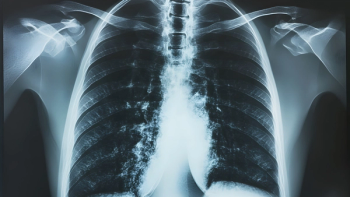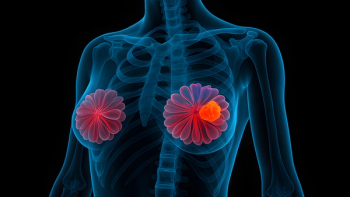
Breakthrough Therapy Designation was based on results from the Phase I/II RAINFOL-01 trial, which showed encouraging clinical activity in patients treated with Rina-S (rinatabart sesutecan) for advanced endometrial cancer.

Breakthrough Therapy Designation was based on results from the Phase I/II RAINFOL-01 trial, which showed encouraging clinical activity in patients treated with Rina-S (rinatabart sesutecan) for advanced endometrial cancer.

Ampreloxetine is being developed to address the root cause of blood pressure instability in multiple system atrophy, aiming to improve patient outcomes and independence.

Results from the first part of a Phase I/II trial (NCT06569823) showed that Z-1018 generated immune responses comparable to Shingrix, with a 100% antibody response rate and nearly 90% CD4⁺ T-cell response in patients with shingles.

The Phase II EvolvE trial (NCT05774184) confirmed barzolvolimab’s mechanism of action but showed no measurable improvement in dysphagia symptoms or esophageal inflammation in patients with eosinophilic esophagitis.

With approval to proceed, the Phase II trial (NCT06092034) of RP-A501 for Danon disease restarts under an optimized dosing and immunomodulatory strategy.

Results from the Phase II OptiTROP-Lung01 trial (NCT05351788) showed that Sichuan Kelun-Biotech’s sac-TMT combined with tagitanlimab demonstrated promising anti-tumor activity and manageable safety as a first-line treatment for advanced or metastatic non-small cell lung cancer.

Breakthrough Therapy Designation was based on results from the Phase II IDeate-Lung01 trial (NCT05280470), which demonstrated clinically meaningful benefits in patients with extensive-stage small cell lung cancer treated with ifinatamab deruxtecan.

Ron Lanton, partner, Lanton Law, explains how shifts in policy and government guidance could reduce public participation and complicate the design and recruitment of future vaccine trials.

The trial’s first patient has been treated to assess the BREATHE Airway Scaffold, which was developed to enhance breathing and daily functioning in patients with severe emphysema.

Ron Lanton, partner, Lanton Law, explains why evolving federal guidance and new technologies are pushing clinical operations teams to strengthen oversight and safeguard the credibility of clinical research.

Results from the Phase II COLLECTiVE202 trial (NCT05370885) demonstrated a statistically significant difference between VE202 and placebo in producing endoscopic or clinical responses in patients with mild-to-moderate ulcerative colitis.

Jon Walsh, founder, chief scientific officer, Unlearn, explains how AI and digital twins are helping clinical trials become more efficient, patient-centric, and capable of supporting innovative study designs over the next decade.

Jon Walsh, founder, chief scientific officer, Unlearn, explains how AI and digital twin technologies are being applied to improve data transparency, ensure reproducibility, and strengthen the reliability of clinical trial outcomes.

Results from a Phase II trial (NCT06640972) showed that patients treated with RDX-002 experienced significant reductions in postprandial triglycerides, less weight regain after GLP-1 therapy, and improvements in key cardiometabolic markers.

Jon Walsh, founder, chief scientific officer, Unlearn, explains how regulators are clarifying best practices for integrating AI and digital twins into clinical research.

The global Phase III EMPEROR trial (NCT06872125) will evaluate the safety and efficacy of zorevunersen, a novel antisense oligonucleotide designed to reduce seizures and improve cognitive and behavioral outcomes in children with Dravet syndrome.

Results from the Phase III EPCORE FL-1 trial (NCT05409066) showed that patients treated with Epkinly (epcoritamab) in combination with Rituxan (rituximab) and Revlimid (lenalidomide) for relapsed or refractory follicular lymphoma demonstrated significant improvements in overall response rate and progression-free survival.

Jon Walsh, founder, chief scientific officer, Unlearn, explains how digital twins provide patient-level predictions that enhance trial precision, reduce enrollment needs, and support AI-driven drug development.

Results from the Phase III ATTAIN-1 trial (NCT05869903) showed that the highest dose of orforglipron achieved an average weight reduction of 12.4% in patients with obesity or overweight.

Jon Walsh, founder, chief scientific officer, Unlearn, explains how AI-designed therapies and digital twin technology are accelerating clinical trials, improving data precision, and reshaping early-phase drug development.

The biotech company extends its Phase I trial (NCT06252220) of DA-1726 to eight weeks following encouraging early efficacy, safety, and weight loss data in patients with obesity.

Company opts not to advance VX-993 into pivotal development after Phase II data show no statistically significant benefit over placebo in post-bunionectomy surgical pain relief.

The Phase I/II trial will evaluate the safety and early efficacy of ABT-301 in combination with tislelizumab and bevacizumab in patients with colorectal cancer.

The FDA’s green light for a Phase II trial (JSKN003-202) of JSKN003 accelerates efforts to address platinum-resistant ovarian and related gynecologic cancers.

Results from the long-term extension of the Phase III TRAILBLAZER-ALZ 2 trial (NCT04437511) showed sustained benefits with early Kisunla treatment, including reduced risk of disease progression and high rates of amyloid clearance in early Alzheimer disease.

Results from the Phase III Clarity AD open-label extension trial (NCT03887455) suggest weekly subcutaneous maintenance dosing with Leqembi may offer a more convenient and well-tolerated alternative for patients continuing long-term treatment.

Results from the Phase III BRUIN CLL-314 trial (NCT05254743) showed that Jaypirca (pirtobrutinib) achieved superiority in overall response rates compared to Imbruvica (ibrutinib) in patients with chronic lymphocytic leukemia or small lymphocytic lymphoma.

Results from the Phase III VIKTORIA-1 trial (NCT05501886) demonstrated that gedatolisib administered with fulvestrant, with or without Ibrance (palbociclib), showed statistically significant and clinically meaningful improvements in progression-free survival in patients with HR-positive, HER2-negative, PIK3CA wild-type advanced breast cancer.

Results from the Phase III PREVAIL trial (NCT05556096) of gefurulimab demonstrated a statistically significant and clinically meaningful improvement in Myasthenia Gravis Activities of Daily Living at 26 weeks compared to placebo.

Results from the Phase III ABTECT-1 (NCT05507203) and ABTECT-2 (NCT05507216) trials showed that Abivax’s obefazimod demonstrated significant clinical remission in patients with ulcerative colitis.